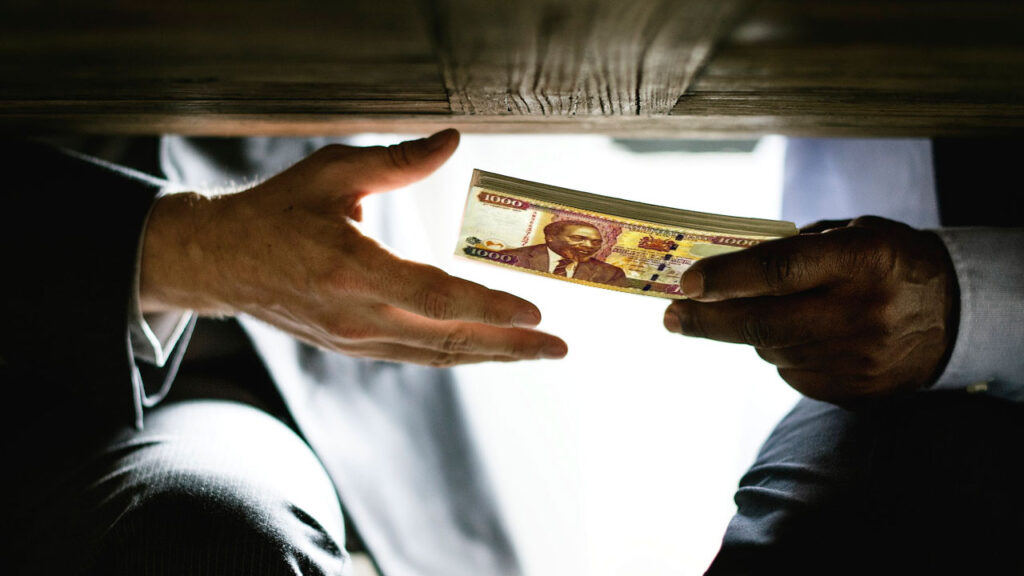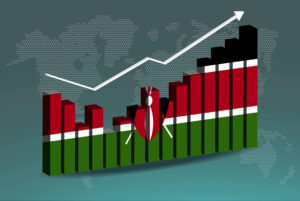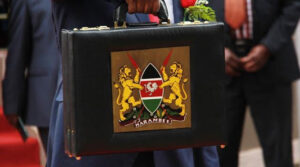On October 18th 2016, during a State House Summit on Governance, the then President Uhuru Kenyatta voiced his frustration at the prevalence of corruption in Kenya. He famously asked his audience a simple question, “what do you want me to do?” For emphasis, he even repeated the question in Swahili, “mnataka nifanye nini jameni?”. The statement exemplified what was seen as a state of national resignation in the face of a monster that continues to eat up the future of many Kenyan children.
The Auditor General at the time, Edward Ouko emphasized for the umpteenth time, that Kenya was losing a staggering one third of its budget to corruption every year.
Seven years later, corruption continues to frustrate every single Kenyan. On May 19th while attending the burial of David Wawerū Ng’ethe father of Dagoretti South MP John Kiarie, President Ruto warned that, “No one will steal or waste public resources. I will take them head on.” He added that not even his friends would be spared in this fight.
Evidently, corruption continues to strangle Kenya’s society and economy. IMF economists have revealed that lowering corruption and bringing sub-Saharan Africa’s governance to the world average could increase the region’s GDP per capita by an estimated 1 to 2 percentage points a year. Evidently, the economic stakes remain high even as we struggle to keep the fight against corruption on track.
We must therefore employ new strategies to slay what retired judge Aaron Ringera once called ‘the dragon’ of corruption. One such strategy is encapsulated in the Bribery Act 2016. This Act is a classic example of a powerful tool that remains unused in our toolshed, constantly gathering dust.
What Kenyans often forget is that corruption is not just a public sector issue. As a matter of fact, the vice is fueled, condoned and even facilitated by the private sector. After all, as they say, it takes two to tango. Whether you think about Goldenberg, Anglo Leasing or more recently, the NYS and KEMSA scandals, the common denominator has been the prominent role played by private companies and individuals in fleecing the public of its hard-earned taxes.
It was therefore gratifying, when on November 23 2015, the late Bob Collymore, who was at the time Safaricom’s CEO, presented a proposed anti-bribery bill to President Uhuru Kenyatta. Drafted by the private sector, the Bill was a rare example of a sector looking at the log in its own eye and taking a decisive legislative step to pluck it out. The following year, the Bill became the Bribery Act 2016.
With the old dragon seemingly beginning to rear its ugly head again, I suggest that we rededicate ourselves to this fight using every available tool. A natural beginning point is to fully implement the Bribery Act 2016 so as to close the loop of conspiracy between the public and the private sectors, which fuels the vice.
To strengthen the muscle of the private sector in combating corruption, the Ethics and Anti-Corruption Commission (EACC) must assist private entities to develop procedures for prevention of bribery, as required by the Act.
Further, the Bribery Act introduced a critical dimension that was not captured in the Anti-Corruption and Economic Crimes Act, 2003. It spelt out the role of private citizens in the fight against bribery by imposing on them, an obligation to report instances of bribery. In essence, we must all be anti-corruption watchdogs and integrity custodians. If we do so, there will be no room, whether in the public or private sector, for anyone to perpetrate the kind of runaway corruption that we see today.
This is our collective fight. Let us therefore, heed the chilling warning by the chair of Transparency International, Delia Matilde Ferreira Rubio, that “people’s indifference is the best breeding ground for corruption to grow”.Think green, act green!



